“Do you have any electricity available? We need quite a bit of juice, around 3-4kW for the recycling machines…Any tools? Wood, metal? How’s the hospitality industry in your area, any potential distribution partners for the recycled products?”. Laura is sipping on a fresh fruit smoothie somewhere close to Mata Palo (Costa Rica). Over Zoom, I am bombarding her with questions from my floating office on my sailboat Karl in the Las Perlas Islands (Panamá). I am trying to figure out what we need to bring to Costa Rica to set up our first community recycling workspace in partnership with the turtle conservation organization Coprot.
“Okay, got it. Give me a couple of days and I will get back to you about all of this. This is exciting! I can’t wait to check out the recycling machines”. We hang up and I sit in silence for a moment. Karl is rocking gently on his anchor and the sun is spreading sparkling glitter on the surface of the ocean. “It’s happening”, I am thinking, “we will set up our first community recycling workspace. In Costa Rica, in the middle of nowhere. This IS indeed exciting.”
IN MOCEAN & COPROT
We will set up our first community recycling workspace
Immediately, I call Maria to share the good news with her. She is currently working on the research vessel Thomas G. Thompson that is part of the University-National Oceanographic Laboratory System fleet (ugh, that was long!). Ocean nomads that we are, we are used to not always being in the same spot. We keep each other posted through Whatsapp messages and calls, but sometimes it’s emotionally challenging not to be able to share the excitement about a new project or a new milestone reached in person.
First, we need to sail from Panamá to Costa Rica
The project site will be in Costa Rica and our sailboats are both still in Panamá, Pacific side that is. Maria is still working on the research vessel and we both still have quite the boat repair list to steam through before we can lift anchor and sail to Costa Rica. We decide to start the project in early June. It’s a tight schedule, but we usually work best with a bit of time pressure.
It’s the 8th of June by the time we tie our sailboats to the dock of Marina Bahía Golfito in the South of Costa Rica. We had a wonderful four-day passage and were able to voyage under sail for most of the distance. Honestly, we could have made it there one day faster, but we decided to make a quick stop on the way at Isla Jicaron. It’s a wildly beautiful anchorage just south of Isla Coiba. I bet you will understand when you see the pictures.
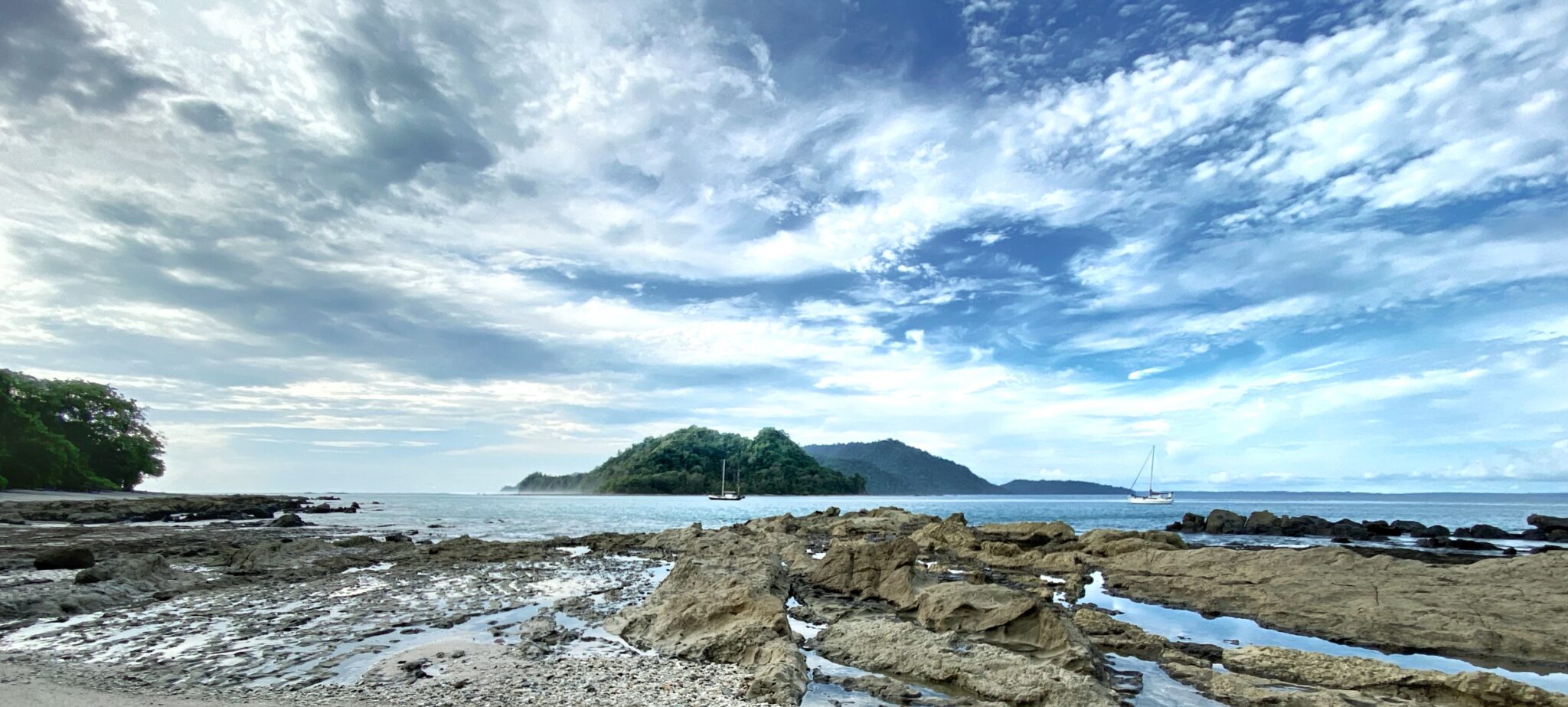
Friendly welcome for the first female captains
The Marina Bahía Golfito is kindly supporting our recycling mission and gives us a free stay at their fancy docks. Our two boats look slightly scrappier than the fancy mega yachts left and right of us. But despite our rough appearance, we are greeted by Yahaira with the most welcoming smile we ever got arriving at a new marina. Unfortunately, it’s hidden behind a mask, but it’s so radiant that it shows in her eyes.
“Ustedes son las primeras capitanas en esta marina, estoy muy emocionada. Que bravas! Y navegan sola las dos?”
Yahaira tells us that we are the first two female captains to arrive at the marina and that she is super excited about it. When we tell her that we both sailed here by ourselves, she is even more impressed. Shily, she asks if she can take a selfie with us. We have to giggle. It feels kind of funny to be treated like some VIPs in this marina where we feel slightly out of place with our rugged looks.
Trucking all our equipment to the project site
Three pair of silicone gloves, two soldering irons, a bunch of pots and bowls, some random pieces of plywood…We start piling some things on top of each other next to the two recycling machines that we need to transport to the camp site just south of Carate on the Osa Peninsula. “Should we take some power tools just in case?” Maria asks. We both look at the mountain of stuff that already sits next to the two bulky machines.
All of this needs to be transported from the Marina to a lancha (a small local water taxi) that shoots over the Golfo Dulce to Puerto Jiménez. After that, we have to load everything into a pick-up truck. “I think they said that they have some tools, I am sure it will be fine. Maybe we should take the surfboards instead. They mentioned that they have some good waves close by”. Decision made, we are packed.
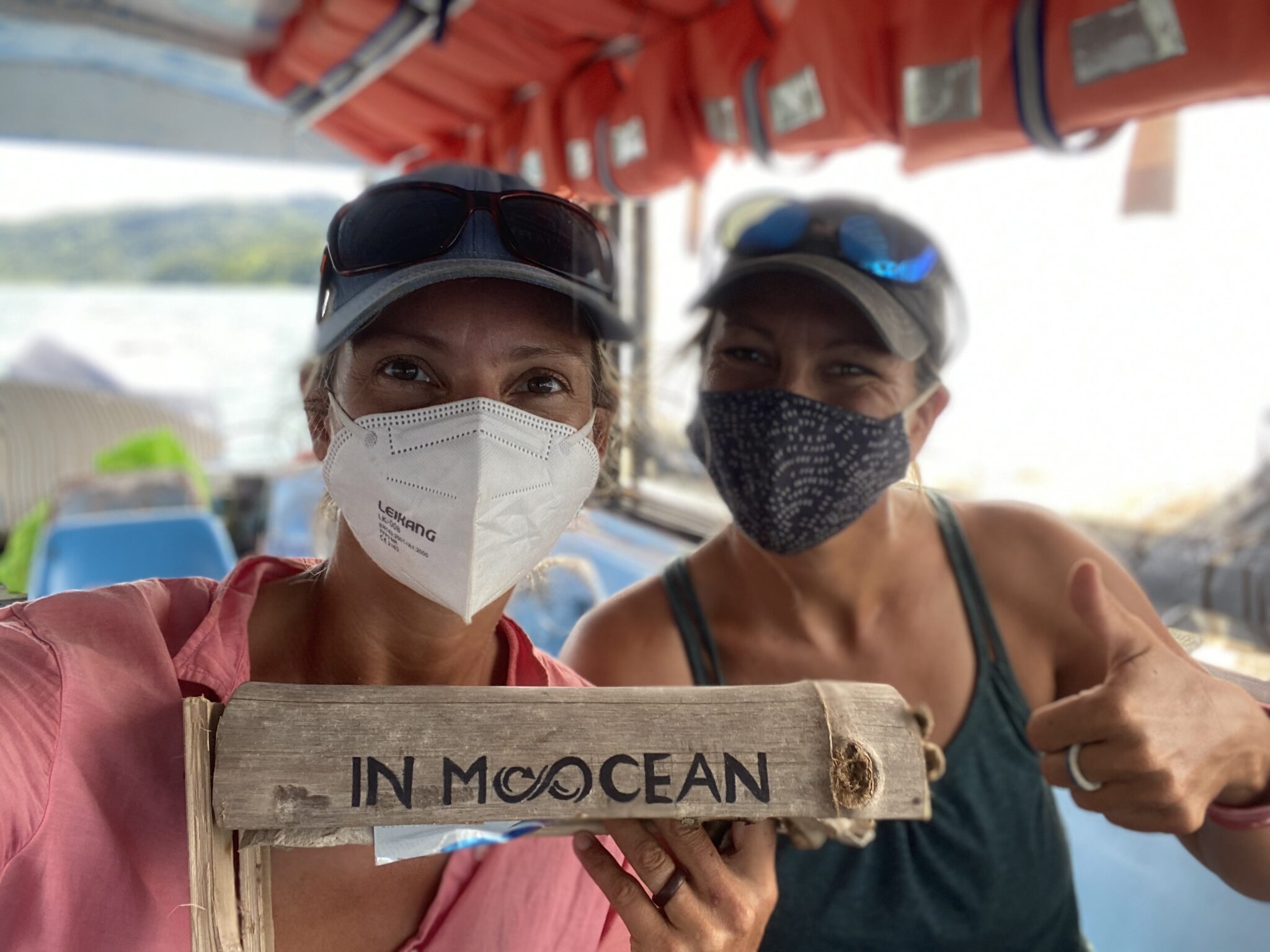
Four hours later, we unload the truck at the campsite. This really is in the middle of the jungle and totally off the grid. Perfect, that’s exactly the place that we have been looking for. Looking back at our arrival now in retrospective makes it hard for me to describe it objectively. We spent three intensive weeks working, sweating, laughing, dancing and occasionally swearing with these wonderful souls here at Coprot and we grew so fond of each one of them.
The passionate protectors of the turtles: The Coprot team
They are a colorful bouquet of inspiring human beings. Mostly in their early twenties, they come from all over the world to help protect the turtles here on the Osa Peninsula. They are all strong characters and each one of them has a very unique touch to them. But there is one thing that unites all of them: they carry a deep love in their hearts for our oceans and mother nature and are wildly passionate to protect them.
Their main task at Coprot are patrolling the beaches to document new nests, to relocate or protect the nests if necessary and to tag Green turtles if they happen to encounter them whilst lying their eggs. There is one beach patrol in the early morning hours (5 to 7:30am) and one at night (usually around 10 / 11 pm to 1 / 2 am). Both of them are magical experiences and we can only recommend everyone to partake in one if you ever get the chance. Those mamacitas have all our respect for digging a massive hole in the sand with their little platypus fins to bury their eggs. It’s quite the spectacle.
A new task for the Coprot crew: reycling collected ocean-plastic
Apart from that, the volunteers and research assistants have to take care of the garden and the animals that live in the camp. In different daily teams, they cook three vegan meals a day, clean the huts and take care of necessary repairs. They also teach English to the locals or lend a hand on farms in the vicinity. And now, they will add another activity to the list: to recycle collected ocean-plastic.
The days at Coprot start early. By 5am latest, we are sipping our coffee on the beach and watch the sun rise over the thick green jungle canopy. We take in our daily dose of Vitamin Sea. The waves are crashing onto the beach and I wonder how the hack the turtles even manage to get in and out of that raging white water. Especially after all the efforts of shoveling a ton of sand and laying hundreds of eggs. Once again, I pull my head in deepest respect to these creatures.


Working in the jungle: mozzies, spiders and snakes
By six we are knee deep in work, sweat dripping off the tip of our noses (and everywhere else, but I am going to spare you those pictures) and mosquitos buzzing around our heads. “Is that the poisonous spider they were talking about?” I am pointing at one of the many spiders around us that looks a bit more on the suspicious side than the others. “Nah, don’t think so, but let’s better leave it alone”. We move on to a different pile of bamboo, trying not to disturb or step on any snakes.
What’s really great about working in the jungle: there is an abundance of bamboo to work with. But there is also a downside to this remote place. There are two hammers, a couple of hand saws, an electrical drill, a grinder with two discs and two screw drivers. We are used to work off-grid from various years living on our sailboats. I think, it’s fair to describe ourselves as fairly adaptable and flexible when it comes to getting projects done with little at hand. But this might be a superior level of off-grid working. Even for us salty chicas.
All hands on deck: we get some help from our sailor friends
Luckily, we are picking up two more friends from “town” to give us a hand the next day. With Tom and Keith in tow we arrive back at the camp. Also with us: bag full of new tools, a nice portfolio of nails and screws and a big extension cord. Now we are talking.
Within the next three days, we set up a cleaning station for the collected ocean plastic, hook up the two recycling machines and a big storage shelf for the tools and the soon to be made recycled products. Well, actually, we can take zero credit for the shelf, that was all done by Tom. He lives in a beautiful open wooden hut with a sailmaker-loft in front (all self-built) of it in the Rio Dulce (Guatemala) and is a true jungle handy man.
Reduce, reuse, repurpose: We use a minimum of new material to set up the recycling infrastructure
In line with our recycling mission, we try to make best use of the material that we have available. We cut some old plastic barrels in half and turn them into sinks for the plastic cleaning station. To prevent microplastic entering nature during the cleaning process, we use a piece of an old mosquito net as a strainer. We find a bunch of old jerry cans and canisters from the beach that we cut open and use as storage units.
Unfortunately, we realize that the generator’s capacity is not big enough for the initial starting current that the plastic shredder needs. Also, the rope is broken. We have to start it with a piece of plastic line that we wrap around the wheel. Luckily, we have our Jacky-of-all-trades with us. Maria can get anything running, seriously anything. She is fearless when it comes to using power tools and with her years of experience in working with wood, fiber glass, metal and now plastic, she is the perfect match for the jobs that need to be done to set up the necessary infrastructure.
Kind help from our next door neighbour: a bigger generator
But what to do about the generator problem? We are in the middle of the jungle, I think I had mentioned that…Sergio, who is managing the camp for Laura, walks over to the finca next door. A twenty to thirty-minute walk, depending on the level of water flooding from the torrential rain. He will ask Wilson to help us out with a generator. They have a six-kilowatt version over there and it would be perfect for the shredder.
And by the way: in the long run, the recycling workspace is supposed to run 100% on renewable energy. We will be getting a very generous donation of second hand solar panels, controllers and inverters by the end of 2021. Furthermore, Dakota Lithium is donating some brand new lithium batteries. We cannot wait to set up the new system, but for “Phase 1” we will still depend on this good old generator.
Two hours later, we are up and running and the shredder produces the first plastic flakes in blue and yellow. Wilson is the kindest soul, he usually has a cute half smile on his lips and is always willing to lend a hand. During our time at Coprot, we knocked on his door various times and he always made a big effort to help us out. It’s people like him that strengthen our faith that humans are naturally good and decent.
An emotional farewell, fair winds and hasta pronto
After a short week, Maria, Tom and Keith are taking off to a different adventure: to sail Maria’s boat Joana to Mexico. We got a ton done in the short time. Now we got to start the training of the recycling process and begin with making some exciting products from all the collected ocean trash. There are big hugs all around. I am pretty sure I spotted some twinkling teary sparkle in one or the other volunteer’s eye when they squeeze Maria tightly and say their farewells.
Three more weeks to go. I set my alarm for 5am and fall asleep to the rhythmic lullaby sung by the dancing rain drops on the palm leaf roof.
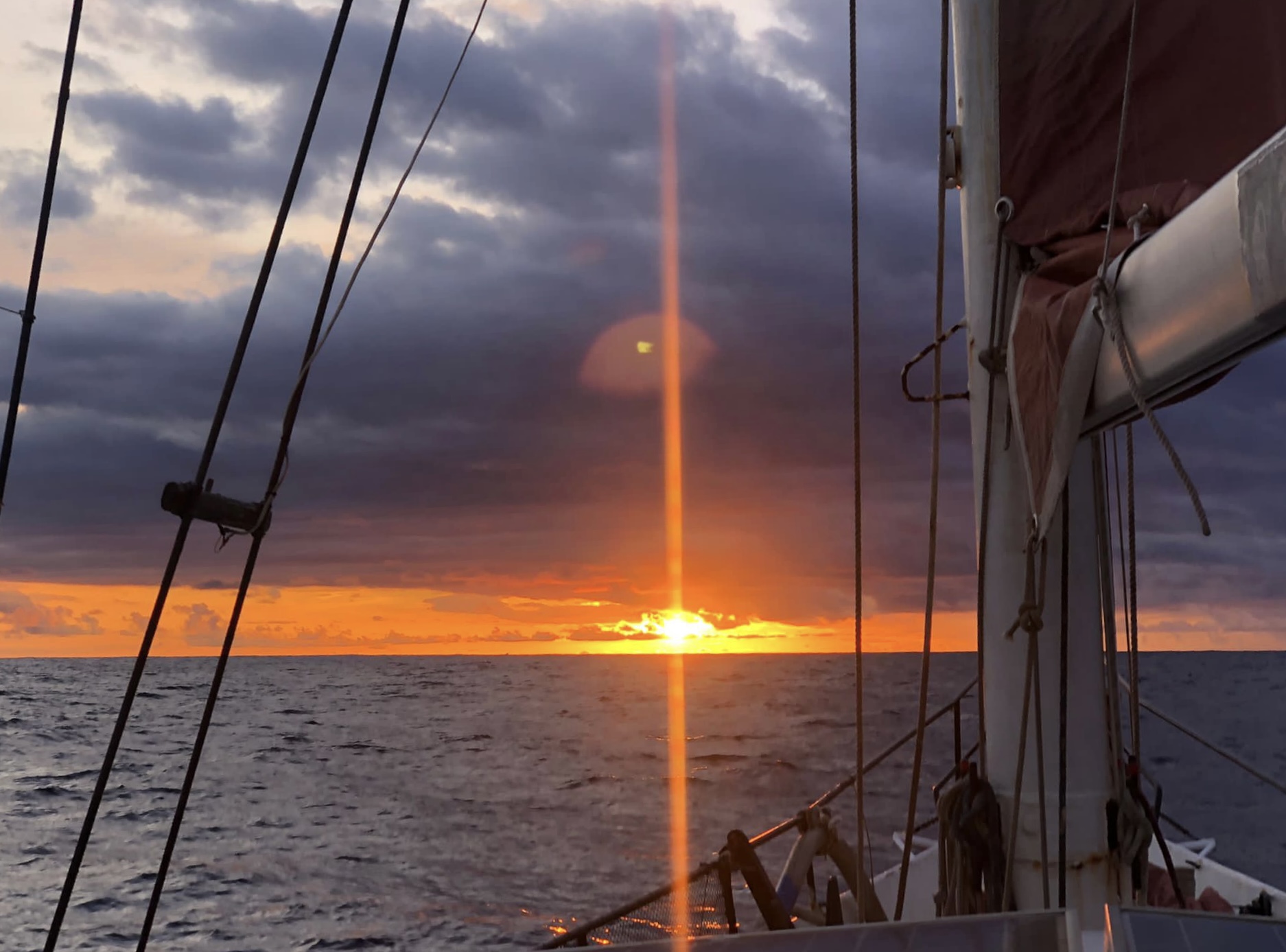
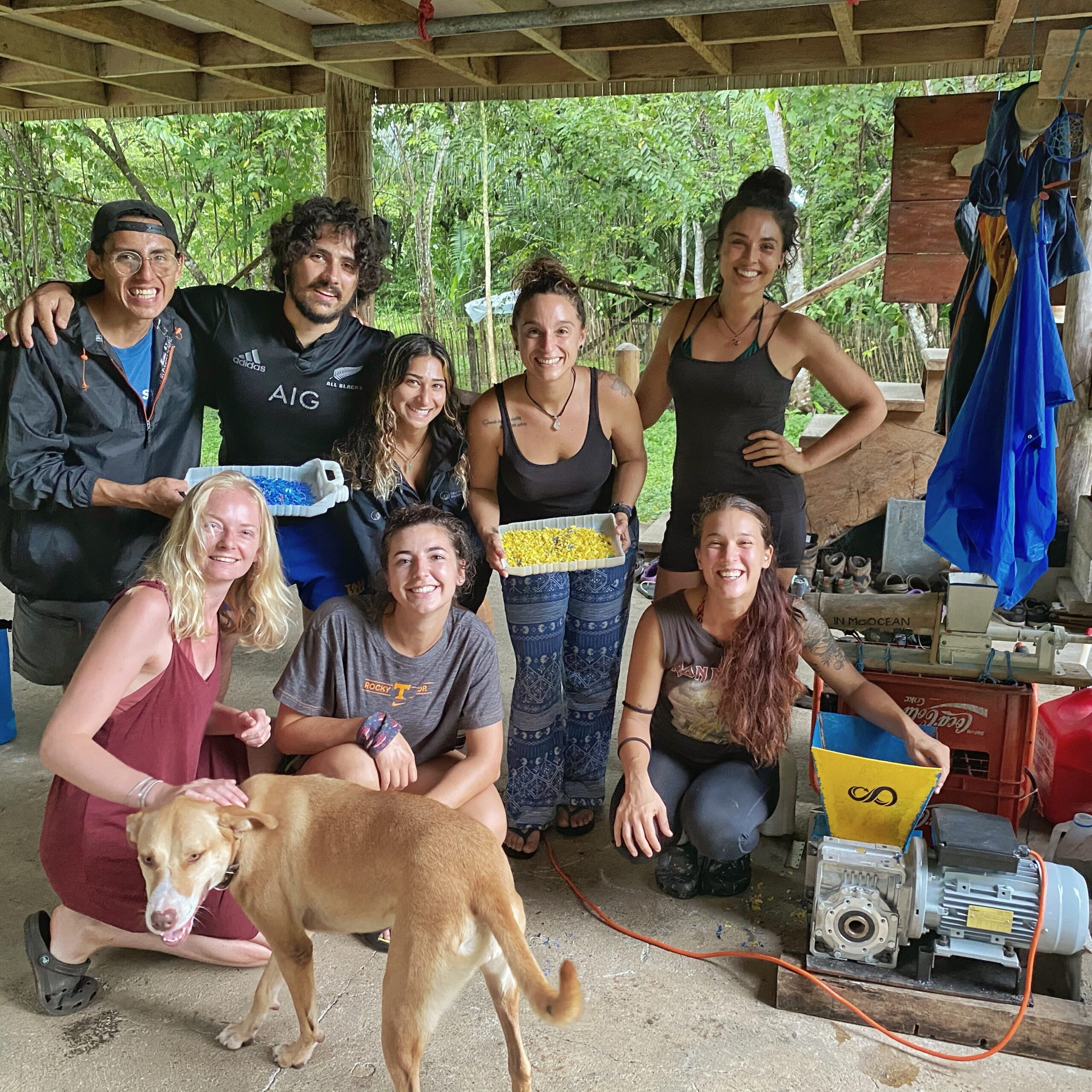
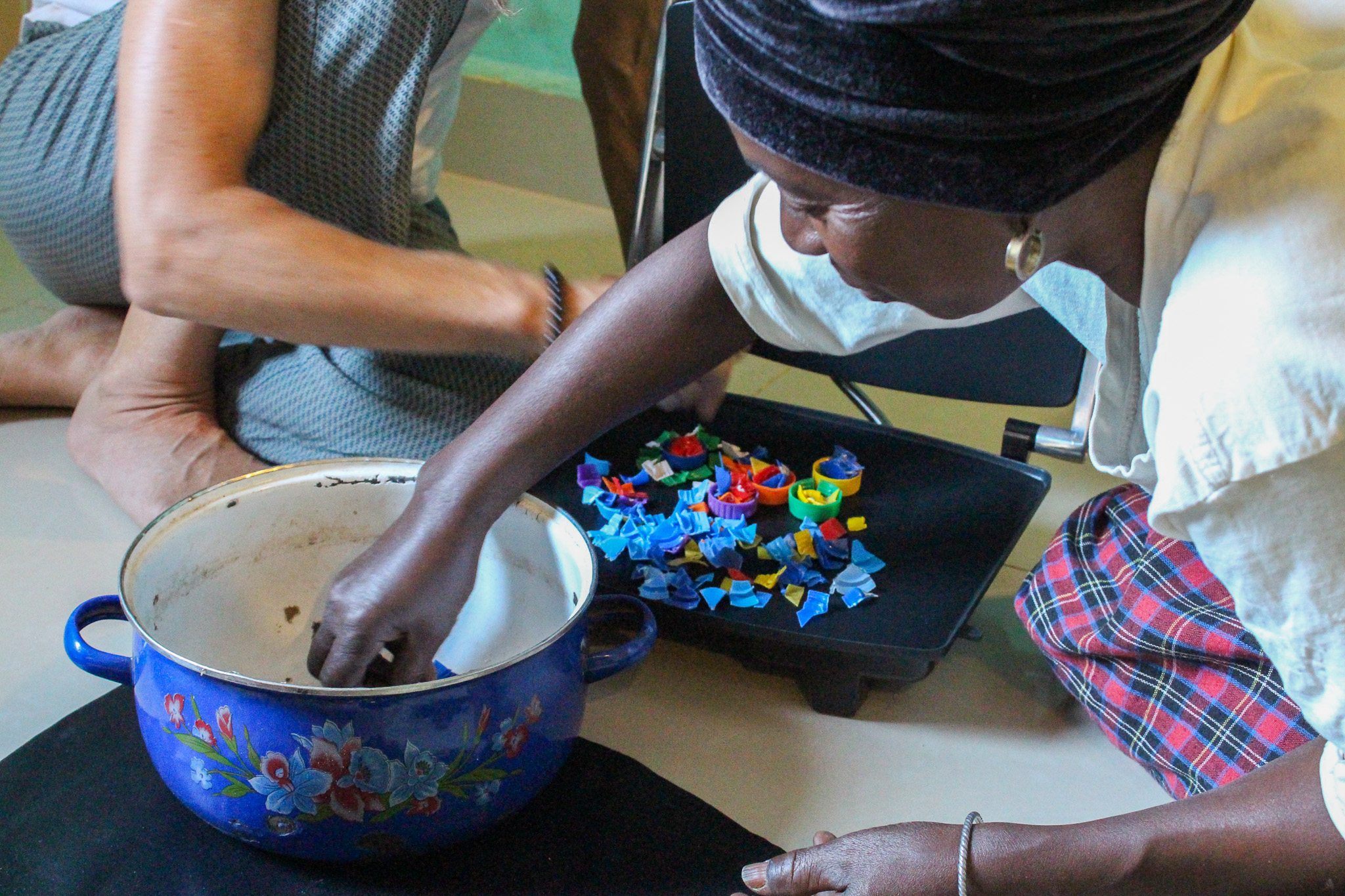

2 Responses
Hi, Nike.
How can I help In Mocean?
Hi Mike,
thank you so much for wanting to support our work with IN MOCEAN. At the moment, we are running a crowdfunding campaign to outift eight sailboats with recycling machines. This Recycling Fleet will spread awareness about the potential of small-scale recycling to create new income streams and clean the environment around the globe. If you have a buck to spare, then we would be forever grateful https://www.indiegogo.com/projects/machines-for-our-in-mocean-recycling-fleet. It also helps a lot if you share the campaign with friends & family or companies that you think might be interested in supporting our mission.
Apart from financial support, you can join our mission for clean oceans by reducing your own personal plastic waste, by cleaning beaches or by communicating with companies or goverments, pushing them towards a circular economy where such thing as waste will be eliminated in the long run.
Thanks again, for wanting to be #inmocean with us. Let us know if you have any more questions.
Ocean Love,
Nike